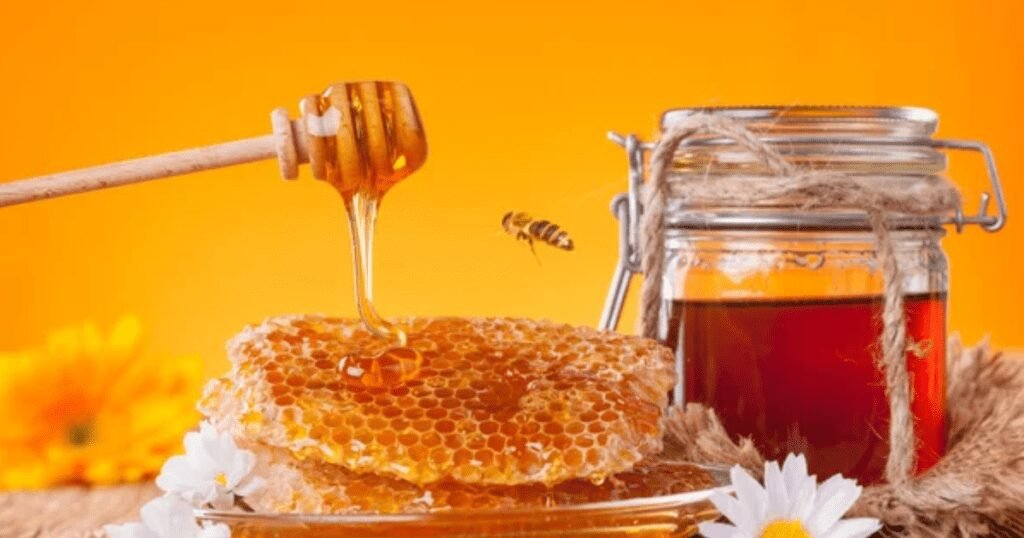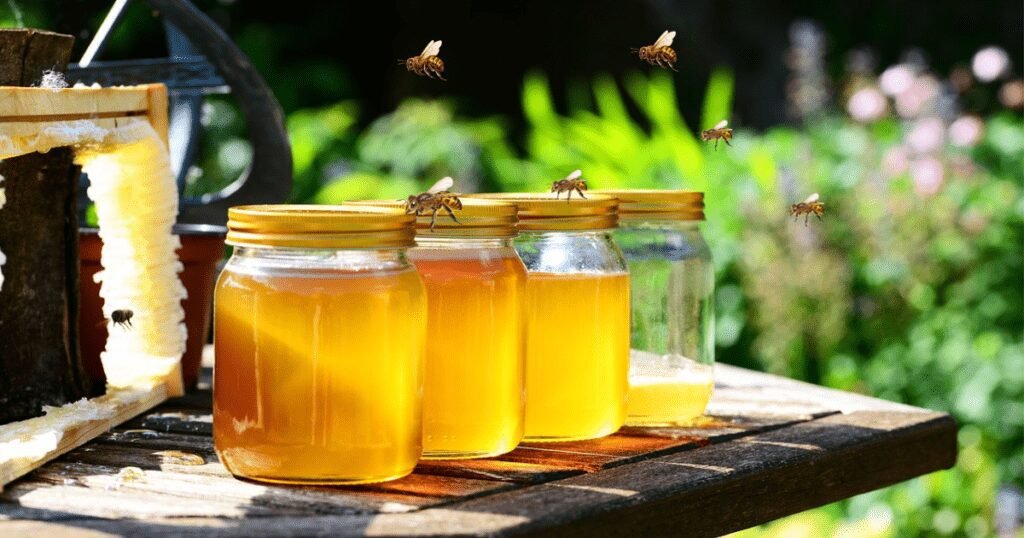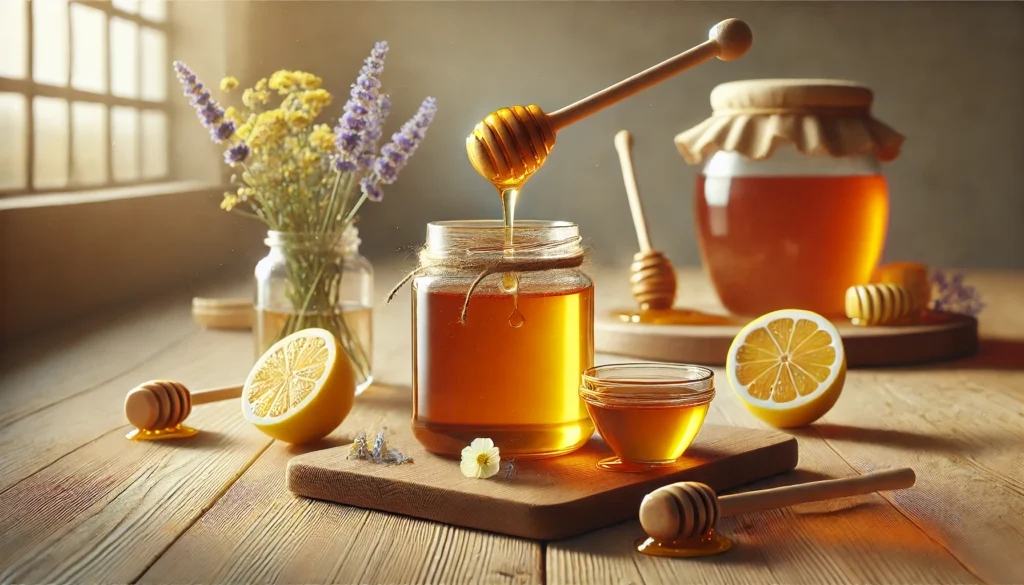Honey as a Natural Remedy Honey, commonly referred to as nectar, is more than the good old sugar in your tea. Women have used it over the ages as a natural medicine, and no one has complained. Like any other organic compound, honey is made up of carbohydrates, water, and other bioactive substances, primarily flavonoids and phenolic acids and extracts. That makes it a perfect candidate for any of your health remedies.
Honey has been endorsed by the World Health Organization for its effectiveness in the treatment of coughs and the healing of wounds. Unlike certain instances where honey may be used for skin purposes, honey with a cough is the most effective. This is very significant, especially in a society where respiratory infections are rampant. However, not all honey is raw, and raw honey is the best healer.
It does not erase its significance as a natural product that has been used for treatment purposes since ancient times and, in more modern times, has been the subject of scientific research. In this particular piece of writing, we will focus on seven simple forms that can be used to apply honey as medicine for various ones.
Types of Honey and Their Specific Benefits

Manuka Honey
This kind of honey is mostly harvested in New Zealand. It is called manuka honey and is distinguished for its presence in methylglyoxal (MGO). This particular characteristic makes Manuka honey’s efficiency in curbing bacterial growth phenomenal. Based on research, Manuka honey can inhibit bacterial growth by about 80% in chronic itch wounds. This makes this product very useful for those seeking to heal wounds and prevent infections.
Buckwheat Honey
Buckwheat honey is dark and rich in its own unique properties but more specifically minerals. These minerals are essential in the art of fighting oxidative stress that is toxic to cells and forms the basis of many ill-health conditions. According to the recommendations, the same Buckwheat honey is said to be able to lessen oxidative stress by almost 30%. This is why Buckwheat honey is recommended for fighting such ailments.
Acacia honey
As the name suggests acacia honey is not only a sweet substance but rather sweet syrupy liquid that is colored light in appearance especially due to its symbiotic nature. It is reduced in glucose and has a low glycaemic index, which makes it applicable to patients with diabetes as it helps control sugar levels in the body. People’s appetite, thanks to its neutral taste and slow tendency to crystallize, also helps with its lesser use in cooking.
Royal Honey
Royal honey, a product thought to enhance vitality and sexual health, has been proven to raise energy. In a study on the consumption of royal honey, the participants who took it daily recorded a 20% increase in their general energy after four weeks. Hence, it would be a favorable addition for those who are out seeking to improve themselves.
Clover Honey
Many people know that clover honey is beneficial to the respiratory system and helps maintain the normal functioning of the lungs. It has been noted that this honey has anti-infectious properties, and that is why it helps heal sore throats and symptoms of respiratory diseases. This particular variety of honey should be included in your menus so that the proper function of the respiratory system is maintained.
Honey for Cough and Throat Relief
Due to its marvelous natural benefits, honey has been used as a cough medicine throughout the ages, and science concurs it actually works. Supplementing children aged 1-5 years suffering from upper respiratory tract infections with honey reasonably suppressed cough in the study compared to the active control cough suppressant dextromethorphan – an often used cough medicine – in a way that honey-dependent reduced cough by 40% and dextromethorphan used 24% of its potential.
In most cases, the effect of honey is certainly related to the fact that due to its thick and gel-like viscosity, honey coats the inner lining of the throat, thus working in every sense as a confectioner’s helper as well. This reduces the reflex and minuses the possibility of the feeling of cough to an extent. If honey proved to be that soothing, why not add lemon and create a harmonious blend that satisfies temperature discomfort and extra stubborn cough?
Another remedy is to take one tablespoon of honey and mix it with the juice from half a lemon and warm water. This mixture needs to be taken at intervals during bake periods when you are lightly sipped to avoid the heat in your throat and prevent coughs.
Honey for Digestive Health
Honey is known to complement gut health due to its prebiotic properties. Prebiotics are substances that feed the good bacteria in the stomach, helping to maintain its healthy equilibrium. This, in turn, may help one’s digestion and general health within the gastrointestinal tract.
According to a study that had 100 patients suffering from gastroesophageal reflux disease (GERD), the use of this remedy, 2 tablespoons of honey per day for four weeks lowered the symptoms of GERD by 25%. Because honey easily coats the esophagus and reduces inflammation, it is considered a natural treatment for GERD by many people.
Furthermore, honey has antibacterial effects that help prevent the development of peptic ulcers by arresting the growth of Helicobacter pylori. To ease stomach problems, you can take honey and ginger. One way is to take honey and grate some fresh ginger onto it to be taken before meals.

Honey for Skin Moisturization and Acne Treatment
Due to its particular property of water retention, honey finds its application as an active agent in numerous skin care procedures. It is useful in retaining moisture in the skin thereby making it soft and supple. Hence honey is incredibly effective to treat dry skin disease such as eczema and psoriasis.
In a case study informed with 50 moderate acne patients it was shown that application of Manuka honey (UMF 10+) for two weeks resulted in a 30% decrease of acne lesions. Antibacterial action of honey suppressed the acne bacteria up to 90%, which makes this treatment very efficient in the case of acne.
As a productive and convenient solution for your complexion, you may want to use a honey face pack. When ready, apply a thin coating of raw honey to the skin for 20 minutes, then rinse with warm water. This will aid your skin in moisturization and reduce the chances of having acne.
Honey for Wound Healing and Burns
The use of honey in an application to wounds and burns has been well-established. The honey’s properties are helpful in the treatment of different kinds of wounds and burns. A total of 75 patients were studied post-burn and rhabdoidal therapy over a period of 1 month, and it was seen that honey decreased the healing time by 23% while outperforming standard procedures in infection control.
Such honey features allow for the enhancement of the dermal tissue and minimization of swelling in cases of diabetic foot ulcer treatment. The use of honey on diabetic ulcers promotes healing while decreasing the chances of further infection.
And as a first aid treatment, I would recommend keeping a jar of raw honey in your medicine cabinet. It is effective to use honey for the quick healing of superficial cuts, abrasions and burns by covering these lesions with honey.
Honey for Immune System Support
By its remarkable efficacy, honey is widely acclaimed for its antioxidant and immune-boosting capacities. Antioxidants attack free radicals and reduce the amount of oxidative stress, which in turn increases any person’s immunity. A controlled trial conducted among 50 healthy adults aged 23-60 years found that intake of 1 tablespoon of Buckwheat honey every day for 30 days increased some immune markers by 15% and immunosuppressive oxidative stress markers by 30%.
The use of honey will help in providing a sustained health-benefiting effect over some time as far as the body’s defence mechanism is concerned. To help your body’s defences go up let the children have at least a spoon full of honey mixed with their usual morning tea or nutrition yogurt.

Honey for allergies
In explanation of the remedy honey for allergies, it is said that taking locally available honey can prepare the body to overcome the affecting pollens in that specified region. 36 individuals suffering from such allergies who were consuming and using a local honey during the allergy– season found their allergy symptoms were decreased by 25%.
So, if you are looking for a way to prevent these allergies for as long as possible, why not try preparing yourself by taking local honey some months before the allergy season? This will boost your immunity to the local pollen and reduce how affected you will be during that time.
Honey for Restoring Energy and Vigor
Due to the high amount of carbohydrates, honey is a source of energy improvement. These carbohydrates supply a source of rapid energy which is why honey is recommended to improve physical activity and energy levels. It was observed in a research study where 60 adult participants aged 30 to 50 years used royal honey over a period of 4 weeks, they reported increased energy levels.
Using honey as part of a pre-workout meal can be an effective way to increase energy. Add about a tablespoon of honey to your smoothie,Chia seeds or yogurt to boost your energy before working out.
Conclusion
Honey is a remedial agent with a variety of health benefits. For those who seek lavish effects and simple measures from cough in the throat or have digestive problems, or have too dry skin and want to never fall sick again, honey still has a lot in store.
Regular use of honey allows patients to receive the maximum effect at a minimum expenditure of effort, time, or resources of any kind. If you need help understanding this article or other information on this topic, please speak with your doctor or a nutritionist specializing in natural remedies.
But if you feel lazy to do treatment or take antibiotics or drugs again, you may start using honey instead. Most people should begin with considering the varieties of honey and its applications in their food and skin care. Wellness will bless you.
Frequently Asked Questions (FAQs)
Can a baby have honey?
It is not safe for babies under the age of one to take honey as there could be a risk of infant botulism syndrome which is a rare but serious condition caused by bacteria present in honey. Ironically, it is advisable that parents can add honey to their child’s diet after the child’s first birthday.
Is honey effective for lowering weight?
Honey does not give you empty calories being sweet only with the use of natural sugars and also cannot be fully written off because it does have some calories in it. While on a weight loss program, one must follow a healthy diet and exercise regularly for that to be effective.
Why is raw honey so much better than normal honey?
Raw honey is considered better as it has undergone lesser processing, and more of the natural enzymes, antioxidants, and nutrients remain for use. However, both the raw honey and the regular honey are healthy, and their health will determine the personal preference and even supply.
Under what conditions should honey be kept?
Honey should be kept in an air-tight container away from direct sunlight a room temperature. Honey when properly stored can remain stable and safe for consumption for a long duration, though crystallization of honey can occur which is treated as normal and if the honey is gently heated, it can be removed.
Is it possible that honey can provoke allergic reactions?
Even though this is uncommon in most cases, there are some people for whom honey can trigger an allergy, especially those who already suffer from pollen allergies. This may include hives, swollen tongue, and respiratory problems. If symptoms suggest an allergy is present, it’s important to stop consuming honey immediately and seek medical advice for proper treatment.
Medicinal uses of honey?
Wound healing – promotes tissue repair and prevents infection, Cough relief – soothes sore throats and reduces coughing, Digestive aid – helps with ulcers and indigestion, Antioxidant – boosts immunity and fights inflammation, Energy source – provides quick natural energy,
What is the natural purpose of honey?
The natural purpose of honey is to serve as food for bees, providing them with energy and nutrients.
What is the healing power of honey?
Honey has healing powers due to its antibacterial, anti-inflammatory, and antioxidant properties, helping to heal wounds, soothe sore throats, and boost immunity.
How is honey a natural remedy?
Honey is a natural remedy because it has antibacterial, anti-inflammatory, and antioxidant properties that help heal wounds, soothe sore throats, and boost immunity.
What is the natural purpose of honey?
The natural purpose of honey is to serve as food and energy storage for bees, especially during winter when nectar is scarce.
Our Related Pages
Full Guide to a Weekly Healthy Diet Chart for Optimal Wellness
Organic Hacks to Balance Blood Sugar Levels and Control Diabetes Naturally
Best Healthy Foods Near you for Heart : Your Guide to Heart-Smart Choices


